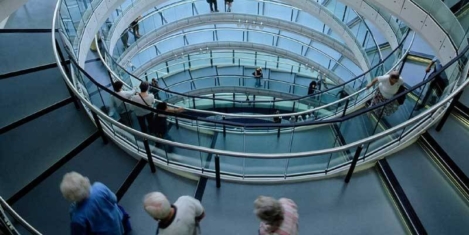July 25, 2017
Japan introduces new teleworking laws to change work culture in run up to Olympics
 It’s not just the UK that took time yesterday to reconsider its relationship with work. Japan launched a scheme to promote teleworking in an effort to address the country’s notoriously poor working culture and ease congestion in the build up to the Tokyo Olympics of 2020. Over 900 companies are claimed to have participated in Telework Day, which will be held on July 24 each year from now until the Olympics opening ceremony on July 24, 2020. Prime Minister Shinzo Abe’s government has already introduced laws to address Japan’s notorious problems with overwork, raise contract workers’ pay, and curb a general abuse of labour laws. Earlier this year, the Japanese government announced plans to impose a cap on overtime of 100 hours a month to reduce the number of cases of “karoshi”, or death from overwork, among its people. The idea is to restrict overtime to an average of 60 hours a month, with a 100-hour limit in busy periods.
It’s not just the UK that took time yesterday to reconsider its relationship with work. Japan launched a scheme to promote teleworking in an effort to address the country’s notoriously poor working culture and ease congestion in the build up to the Tokyo Olympics of 2020. Over 900 companies are claimed to have participated in Telework Day, which will be held on July 24 each year from now until the Olympics opening ceremony on July 24, 2020. Prime Minister Shinzo Abe’s government has already introduced laws to address Japan’s notorious problems with overwork, raise contract workers’ pay, and curb a general abuse of labour laws. Earlier this year, the Japanese government announced plans to impose a cap on overtime of 100 hours a month to reduce the number of cases of “karoshi”, or death from overwork, among its people. The idea is to restrict overtime to an average of 60 hours a month, with a 100-hour limit in busy periods.

























 Emerging technologies such as artificial intelligence, robotics, virtual reality, augmented reality and cloud computing, will transform our lives and how we work over the next decade; and by 2030 every organisation will be a technology organisation. As such businesses need to start thinking today about how to future-proof their infrastructure and workforce, according to a report published by Dell Technologies. The research, led by the Institute for the Future (IFTF) alongside 20 technology, academic and business experts from across the globe also offers insight on how consumers and businesses can prepare for a society in flux. ‘
Emerging technologies such as artificial intelligence, robotics, virtual reality, augmented reality and cloud computing, will transform our lives and how we work over the next decade; and by 2030 every organisation will be a technology organisation. As such businesses need to start thinking today about how to future-proof their infrastructure and workforce, according to a report published by Dell Technologies. The research, led by the Institute for the Future (IFTF) alongside 20 technology, academic and business experts from across the globe also offers insight on how consumers and businesses can prepare for a society in flux. ‘










July 24, 2017
Employers have a growing responsibility to provide staff with cycling facilities
by Peter Ferrari • Cities, Comment, Property, Wellbeing
(more…)